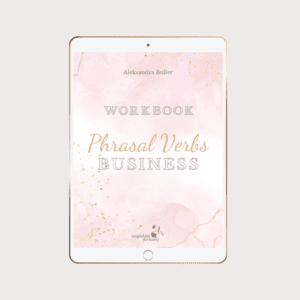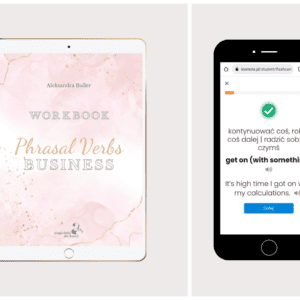Transcript of my podcast episode (29)
Hello, my dear listeners! This is ENGSPRESSO episode no. 29. We’ve had quite a break again. You should know that if I’m not here once in two weeks, it means that I’m either on holiday or extremely busy. And yes, lately I’ve been swamped because I’ve moved house, and you can probably imagine how many things I had to pack and then unpack in the new flat. Anyway, the good news is that I’ve finally found my microphone in one of the many boxes here, so I can come back to recording my ENGSPRESSO episodes. Now I’m still waiting for some furniture and generally trying to organise my life in the new place. On top of that, of course, I run my English lessons as usual, and I’ve been trying to finish the second part of my e-book with English idioms. Keep your fingers crossed for it as I really want it to see the light of the day!
How about you? How have you been? Do you try to make time for these ENGSPRESSO episodes or anything else related to learning English? I guess that during your May holiday many of you had your heads in the clouds, but perhaps now you’ve decided to get down to learning something new. And it’s great because this time, I want to teach you another two expressions!
The first one is IN CASE OF SOMETHING. This phrase is rather formal and means 'if something happens, or in preparation for when something happens’.
For instance: We need to know whom we should contact in case of an emergency. Now, repeat after me.
The translation is: Musimy wiedzieć, z kim możemy się skontaktować w sytuacji awaryjnej.
Another example: In case of a power cut, I can use the gas cooker.
W razie awarii/braku prądu mogę użyć kuchenki gazowej.
The second expression is TO BE FAMILIAR WITH SOMETHING. It simply means 'to know something well’.
For instance: In order to be a good tour guide, you need to be familiar with the history and culture of the city.
Aby być dobrym przewodnikiem, musisz znać się na historii i kulturze tego miasta.
Another example: If he hadn’t been familiar with the local customs, he would have got into trouble.
Gdyby (wtedy) nie znał lokalnych zwyczajów, wpędziłby się w kłopoty.
And now it’s time for your ENGSPRESSO to go!
Our context for the phrases is:
In case of a cyber attack, call their customer service – they’re familiar with data recovery procedures.
W razie ataku hakerskiego zadzwoń do obsługi klienta – oni znają procedury odzyskiwania danych.
All right, we’ve made it! Perhaps the phrases I taught you today are not too challenging for you, but I’m sure that the example sentences may be a bit harder and more difficult to repeat, especially the last but one sentence in the 3rd conditional! Always make sure to analyse the structure of the sentences I give you – it can be a brilliant grammar revision.
Visit my website angielskidokawy.pl to check out the transcript of today’s episode or have a look at my e-books and courses online if you enjoy learning English with me and my materials. You’ll find them in my shop.
Thank you for tuning in and speak to you soon!
Wyświetlanie 10–15 z 15 wynikówPosortowane według ceny: od niskiej do wysokiej
-

365 IDIOMÓW, PRZYSŁÓW I POWIEDZEŃ – kurs online
65,00zł Dodaj do koszyka -

PHRASAL VERBS BUSINESS – e-book
65,00zł Dodaj do koszyka -

PHRASAL VERBS BUSINESS – PAKIET e-book + kurs online
75,00zł Dodaj do koszyka -

365 IDIOMÓW, PRZYSŁÓW I POWIEDZEŃ – PAKIET e-book + kurs online
85,00zł Dodaj do koszyka -

Lekcja indywidualna (A2-C1)
149,00zł Dodaj do koszyka -

Lekcja próbna
165,00zł Dodaj do koszyka




